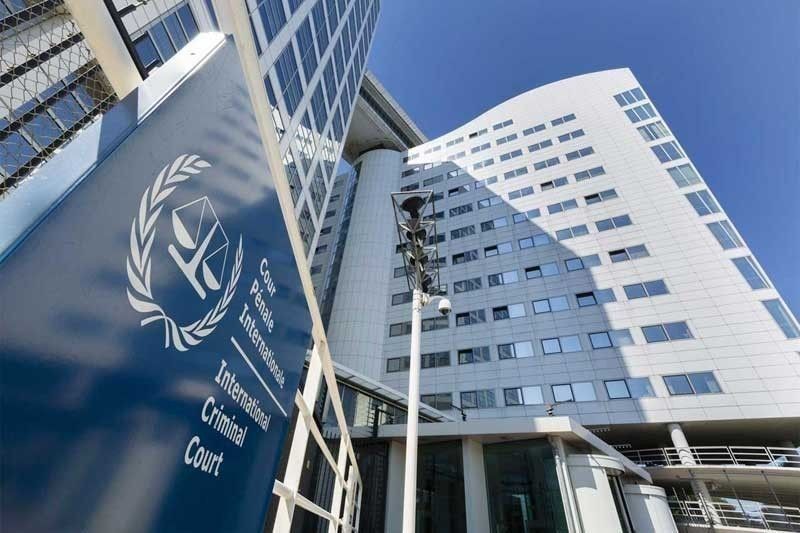Yearender: ICC rejects Philippines appeal to stop drug probe

MANILA, Philippines — Judges of the International Criminal Court (ICC) have given the go-signal for the resumption of investigation into possible crimes against humanity committed in connection with the Duterte administration’s deadly campaign against illegal drugs and the so-called Davao death squad.
In the Philippines, months after President Marcos declared that the government will not cooperate with ICC investigators, some of his allies in Congress are now calling for the country to rejoin the international body.
Last July, in a split decision, the ICC Appeals Chamber rejected the Philippine government’s appeal on an earlier ruling that allowed prosecutor Karim Khan to proceed with the preliminary investigation into the situation in the Philippines.
It paved the way for the continuation of the investigation, which will cover killings committed in the context of the war on drugs from July 1, 2016 to March 16, 2019, when the Philippines officially withdrew from the Rome Statute that established the ICC.
Also included were Davao death squad killings between Nov. 1, 2011 to June 30, 2016, when former president Rodrigo Duterte was either mayor or vice mayor of the city.
The decision, which was welcomed by drug war victims and their families, prompted Marcos to announce that the country will fully disengage from the international body.
But in a surprising turn of events, the House committees on human rights and justice on Nov. 29 approved the resolutions urging Marcos to cooperate with the ICC investigation and rejoin the body.
A similar resolution was also filed by Sen. Risa Hontiveros in the Senate.
Days earlier, Marcos said that proposals to rejoin the ICC were under study, although Executive Secretary Lucas Bersamin later said: “In my view, as far as I know him, he does not mean that we are going back to the ICC very soon.”
Solicitor General Menardo Guevara also maintained that resolutions from Congress are only “non-binding expressions” of lawmakers’ sentiments.
This means that the decision to rejoin the ICC would still be up to Marcos.
Inaction
At the ICC, the victims said there is still no prospect of genuine investigations and prosecutions in the Philippines, despite the change in administration.
In May, a 20-page redacted version of the victims’ submission was released to the public.
It outlined the views and concerns raised by 350 individual victims and 165 families regarding the Philippine government’s appeal to the Jan. 26 decision that allowed the resumption of the probe.
“The situation in the Philippines has not materially improved for the victims represented. If any, gains have been isolated and marginal… Cases against the perpetrators of the crimes have not been forthcoming. Even attempts to obtain recognition that the killings were extra-legal have, unfortunately, been met with resistance from state institutions,” read a portion of a representation made on behalf of the victims.
“There is no substantial, effective and comprehensive investigation into the killings and abuses committed in the Philippines under the pretext of Duterte’s ‘war on drugs’ at present,” it added.
The victims also claimed that the present administration is “unwilling to investigate” the drug war killings, noting that the police still go to their areas to continue operations similar to Oplan Tokhang.
“The victims believe that the present Marcos administration cannot successfully secure justice for them. President Marcos has not eschewed Operation Tokhang and has made no overt action to prosecute or hold accountable any of the top officials or to review the policy,” a portion of the filing read.
Calling for the continuation of the ICC probe, the victims said that “justice and accountability in the Philippines remain largely elusive.”
Duterte’s role
In a separate filing last April, ICC prosecutor Khan maintained that the alleged crimes are not of “marginal gravity” as claimed by the Philippine government.
“In the present situation, the available information demonstrates that at least more than 5,000 and possibly as many as 30,000 civilians (including children) have been killed by police or by ‘unidentified’ perpetrators apparently acting in coordination with police,” he said.
“In many instances, the police allegedly staged self-defence scenarios, planted evidence or otherwise obstructed justice in an effort to justify the premeditated and deliberate murder of civilians,” it added.
He also underscored the role of Duterte in the alleged killings.
“Nothing about these crimes, committed in large part by law enforcement personnel entrusted with protecting citizens from violence, suggests that the potential cases before the Court are of marginal gravity,” it read.
“To the contrary, they are extremely serious and appear to have been at the very least encouraged and condoned by high-level government officials, up to and including the former president,” added the prosecutor, referring to Duterte, whose administration was marred by thousands of killings, including during police operations conducted in support of his campaign against illegal drugs.
Even before the House resolutions, which have yet to pass the chamber, various groups are already urging the government to cooperate with the ICC and allow its investigators to enter the country.
Among those leading the call is the Commission on Human Rights (CHR), now composed of officials appointed by Marcos.
In August, CHR Chairman Richard Palpal-latoc said they are ready to cooperate with the ICC even with Marcos’ earlier proclamation that the country will disengage from the ICC.
“The CHR is a national human rights institution. We are part of a regional and global network of human rights institutions. We have an independent mandate to look into human rights concerns of Filipinos here and abroad,” Palpal-latoc said in a mix of English and Filipino.
- Latest
- Trending




























